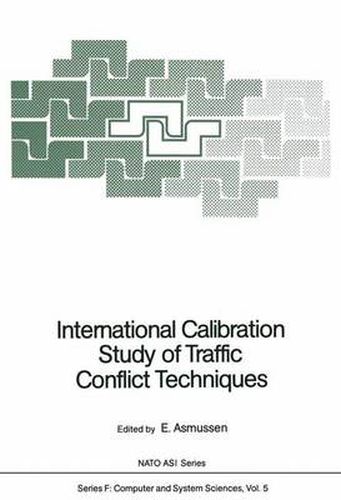Readings Newsletter
Become a Readings Member to make your shopping experience even easier.
Sign in or sign up for free!
You’re not far away from qualifying for FREE standard shipping within Australia
You’ve qualified for FREE standard shipping within Australia
The cart is loading…






This title is printed to order. This book may have been self-published. If so, we cannot guarantee the quality of the content. In the main most books will have gone through the editing process however some may not. We therefore suggest that you be aware of this before ordering this book. If in doubt check either the author or publisher’s details as we are unable to accept any returns unless they are faulty. Please contact us if you have any questions.
The concept of traffic conflict was initiated in the Uni ted States in the 60s and raised a lot of interest in many countries : it was an opening towards the develop ment of a new tool for safety evaluation and the diagnosis of local safety pro blems. The need for such a tool was great, because of the many situations where accident data was either scarce, unsatisfactory or unavailable. Development of Traffic Conflict Techniques (TCT) started simultaneously in the 70s in several European count ries and new studies were also undertaken in the Uni ted States, Canada and Israel. The need for international cooperation was rapidly feIt, in order to exchange data, compare definitions and check progresses. An Association for International Cooperation on Traffic Conflict Techniques (ICTCT) was therefore created, grouping researchers and safety administrators, with the aim of promoting and organising exchange of information and common practical work. Three Traffic Conflict Techniques Workshops were organised, in Oslo (1977), Paris (1979) and Leidschendam (1982). A small scale international experiment of calibra tion of TCTs was also carried out in Rouen, France, in 1979, and five teams took part in it from France, Germany, Sweden, the United Kingdom and the United States; results of this first experiment were used as a basis for the present enterprise. To be acknowledged as a safety measuring tool, traffic conflict techniques had to be validated in relation to traditional safety indicators such as injury-accidents.
$9.00 standard shipping within Australia
FREE standard shipping within Australia for orders over $100.00
Express & International shipping calculated at checkout
This title is printed to order. This book may have been self-published. If so, we cannot guarantee the quality of the content. In the main most books will have gone through the editing process however some may not. We therefore suggest that you be aware of this before ordering this book. If in doubt check either the author or publisher’s details as we are unable to accept any returns unless they are faulty. Please contact us if you have any questions.
The concept of traffic conflict was initiated in the Uni ted States in the 60s and raised a lot of interest in many countries : it was an opening towards the develop ment of a new tool for safety evaluation and the diagnosis of local safety pro blems. The need for such a tool was great, because of the many situations where accident data was either scarce, unsatisfactory or unavailable. Development of Traffic Conflict Techniques (TCT) started simultaneously in the 70s in several European count ries and new studies were also undertaken in the Uni ted States, Canada and Israel. The need for international cooperation was rapidly feIt, in order to exchange data, compare definitions and check progresses. An Association for International Cooperation on Traffic Conflict Techniques (ICTCT) was therefore created, grouping researchers and safety administrators, with the aim of promoting and organising exchange of information and common practical work. Three Traffic Conflict Techniques Workshops were organised, in Oslo (1977), Paris (1979) and Leidschendam (1982). A small scale international experiment of calibra tion of TCTs was also carried out in Rouen, France, in 1979, and five teams took part in it from France, Germany, Sweden, the United Kingdom and the United States; results of this first experiment were used as a basis for the present enterprise. To be acknowledged as a safety measuring tool, traffic conflict techniques had to be validated in relation to traditional safety indicators such as injury-accidents.